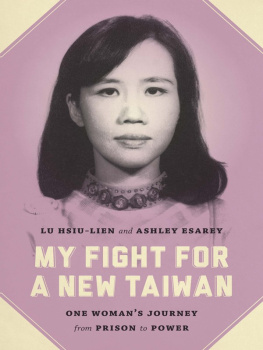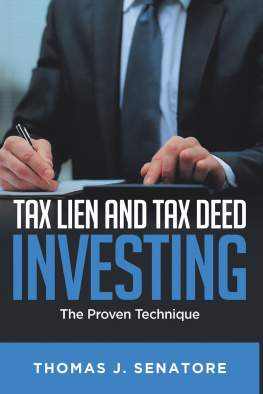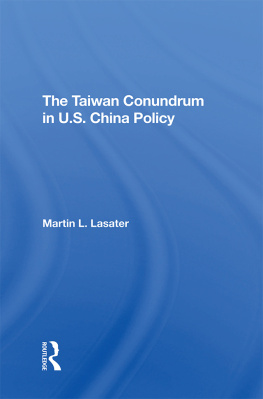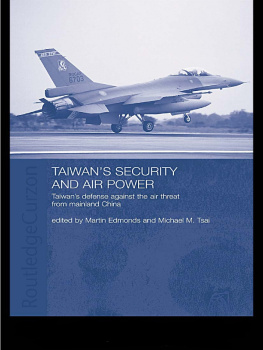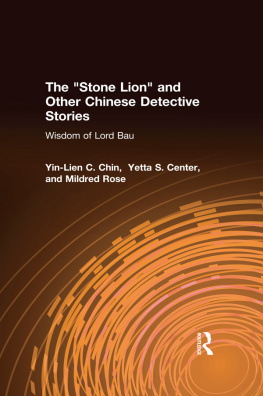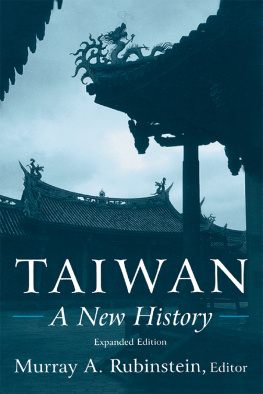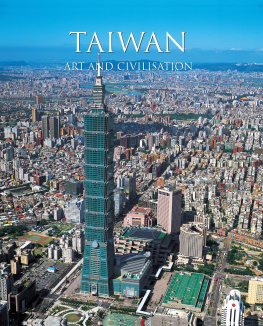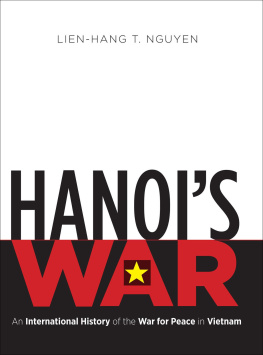2014 by the University of Washington Press
Printed and bound in the United States of America
Composed in Chaparral Pro, typeface design by Carol Twombly
17 16 15 14 5 4 3 2 1
Portions of chapters draw on Lu Hsiu-lien's book Chongshen meilidao [Re-trying the Formosa case] (Taipei: Zili Wanbao Chubanshe, 1991).
All rights reserved. No part of this publication may be reproduced or transmitted in any form or by any means, electronic or mechanical, including photocopy, recording, or any information storage or retrieval system, without permission in writing from the publisher.
UNIVERSITY OF WASHINGTON PRESS
PO BOX 50096, Seattle, WA 98145, USA
www.washington.edu/uwpress
LIBRARY OF CONGRESS CATALOGING-IN-PUBLICATION DATA
Lu, Xiulian.
My fight for a new Taiwan : one woman's journey from prison to power / Lu Hsiu-lien and Ashley Esarey ; foreword by Jerome A. Cohen.
pages cm
Includes bibliographical references and index.
ISBN 978-0-295-99364-5 (hardcover : alk. paper)
1. Lu, Xiulian. 2. Vice presidentsTaiwanBiography. 3. TaiwanPolitics and government2000 4. TaiwanPolitics and government1975 5. Human rights movementsTaiwan. 6. Women politiciansTaiwanBiography. I. Esarey, Ashley.
II. Title.
DS799.849.L78A3 2014
951.24905092dc23 2013046731
The paper used in this publication is acid-free and meets the minimum requirements of American National Standard for Information SciencesPermanence of Paper for Printed Library Materials, ANSI Z39.481984.8
ISBN-13: 978-0-295-80505-4 (electronic)
FOREWORD
Jerome A. Cohen
ANYONE WHO HAS BEEN PRIVILEGED TO TEACH AT MAJOR American law schools for several decades is likely to have taught at least a few students who have subsequently become politically prominent. Of course, many students who burn with political ambition during their law school days are later seduced by other opportunities or frustrated by the vicissitudes and uncertainties of a political career. It is difficult for any professor to predict which of his interested students is likely to climb to the top of the greasy political pole. Yet occasionally a student stands out as having the talent, determination, and courage required for political success. Lu Hsiu-lien surely met that description during the year that she spent at the Harvard Law School in 197778.
Unlike most graduate students, Lu Hsiu-lien came widely heralded. I had heard about her achievements from students from Taiwan as well as American protgs who had lived on the island. Lu Hsiu-lien's journalistic essays and books promoting women's rights and her social activism had already made her a well-known figure at an early age. Moreover, although the repressive Nationalist (Guomindang) regime of that era did not tolerate the public expression of Taiwan-independence sentiments, Lu Hsiu-lien was also known as an advocate of democratic development and freedoms of expression, which would inevitably give voice to such sentiments. She was plainly no ordinary master of laws (LLM) candidate. Slightly older, more mature, less interested in business law, and focused on resuming public life on her return home after graduation, she stood out, even at Harvard, as a future leader deserving of scholarship assistance.
Lu Hsiu-lien added a lot to Harvard life. She frequently exchanged ideas with American and foreign students. While learning more about constitutional and international law, human rights, and even mainland China's legal system, she wrote papers that helped me and other faculty members better understand the realities of Taiwan, which Nationalist propaganda misleadingly referred to as Free China. Lu Hsiu-lien also participated in the weekly informal discussions that I convened as part of the extracurricular activities of Harvard's East Asian Legal Studies program.
The academic year 197778 was a time of great tension in Sino-American relations. The worldnot only the people on Taiwanwas waiting to see whether the new administration of President Jimmy Carter would complete the process of normalizing relations with mainland China, that is, the People's Republic of China (PRC), that the Nixon administration had begun. That would require the withdrawal of formal US diplomatic recognition from the PRC's Taiwan-based rival, the Republic of China (ROC), and termination of the US-ROC defense treaty. It was obvious to all that profoundly important developments were under way that put into question not only Taiwan's security but also the nature and continuity of the island's dictatorial Nationalist government. In those circumstances one can imagine the lively debates that occurred at Harvard and elsewhere, fueled in part by the contributions of students and visiting scholars from Taiwan.
Although at that time it was still not possible for Harvard Law School to enroll students from the People's Republic, our discussions of China policy did trymore faithfully than Chairman Mao's regime hadto implement the traditional Chinese maxim Let a hundred flowers bloom, let a hundred schools of thought contend. Lu Hsiu-lien's was not the only Taiwan voice opposed to the Nationalists, but hers was surely the most daring. Some others from Taiwan took a more moderate position, favoring reform rather than replacement of the Nationalists. The latter group included a brilliant doctoral candidate who became another star of contemporary Taiwan politics, Ma Ying-jeou, now in his second term as president of the ROC.
Ma's political views continued to differ markedly from Lu Hsiu-lien's after both returned from Harvard to Taiwan. Nevertheless, in 1985 Ma, who had already become a deputy secretary-general of the Nationalist Party and English-language interpreter for President Chiang Ching-Kuo, played a key role in winning Lu Hsiu-lien's release from prison after she had served five years of the twelve-year term to which she had been sentenced for advocating Taiwan independence. Ma's bold effort, undertaken at my request, was undoubtedly motivated by not only the old school tie and a desire to grant the wish of a former professor, but also the hope of improving the Nationalist image, which had recently been further tarnished by the assassination of journalist Henry Liu in San Francisco. I have always been grateful for the effective help he gave us.
If prison seems a surprising fate for a recent Harvard Law School graduate, it came as no surprise to Lu Hsiu-lien. Before deciding to return to Taiwan after winning her Harvard degree, she plainly considered the personal risks that would be incurred if someone with her views became politically active in the island's extraordinarily tense situation. Her problem in 1978 was one common to high-minded and ambitious lawyers who came from countries with oppressive governments to receive advanced legal training in the United States. After graduation, what should they do with their enhanced skills and reinforced democratic values? Returning home to fight dictatorship might well lead to detention, punishment, and even death. Yet returning home to practice corporate law or to join the ruling government elite might seem a betrayal of personal ideals and a black mark against one's prospects for future leadership. And remaining in the United States in order to organize opposition from abroad could soon lead to divorce from political developments at home, a reputation for playing it safe while others risk involvement in the struggle, and other frustrations of self-exile.
There was little doubt which choice Lu Hsiu-lien would make. She was tempted to accept a post-graduate fellowship that would have allowed further study and research at Harvard while awaiting the impending upheavals in international relations and Taiwan politics that normalization of US-PRC relations would create. But she decided instead to plunge into the furnace of history. When, shortly before we secured her release, Ma Ying-jeou and I visited her in a military hospital, Lu Hsiu-lien reminded me that on the last occasion we met before she left Cambridge for Taipei, I had told her the late President Harry Truman's famous admonition about politics: If you can't stand the heat, don't go into the kitchen. She then smiled ruefully and said: I didn't realize how hot the kitchen could get!

